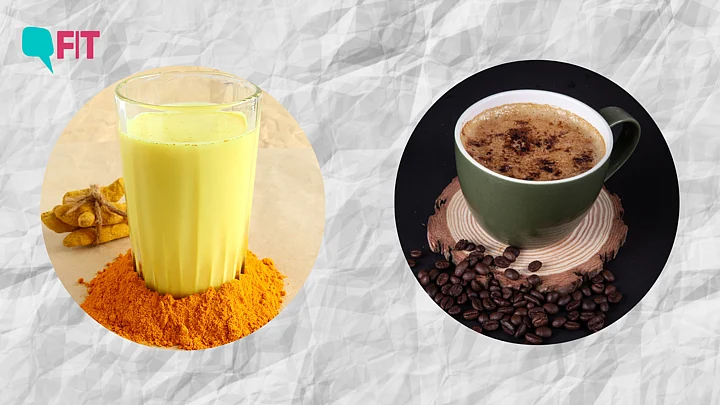Do you struggle with sleep? Join the club.
Insomnia is an epidemic today thanks to multiple factors. And that is bad news as sleep is like a tiny holiday for the body to make it ready for the next day’s work.
Sleep plays an important part in the rhythm of our daily lives, in correcting the chemical imbalances that occur in our brain, while we are awake. If this cycle is disturbed, it affects our entire being.
And just like the relationship between good sleep and good health is well established, the relationship between what you eat and how well you sleep is also very clear. There are rules to eating right for sleeping well.
So whatever the cause, very often just restructuring your food – what you eat and how you eat it can help a lot.
Three Mantras That Help
#1
Don’t eat very little all day and go berserk at night. Avoid high-fat meals and big servings at dinner as they rev up the digestive system and all the gas production and consequent rumblings may keep you awake and grumbling.
Sleeping on a distended belly filled with food pushes the stomach up and with it the diaphragm, leaving less space for the lungs which may cause trouble breathing and disturb your sleep quality.
#2
Avoid rich and spicy foods at dinner time as they may induce heartburn and can worsen acid reflux leading to more breathing trouble.
#3
To help your body go into the rest mode, make sure that the last meal of the day is not too close to the sleeping time. Ideally, eat your last meal at least 2-3 hours before you go to sleep.
So if 10 pm is your sleep time, then dinner should be wrapped up latest by 8, or better still by 7.30.
Digesting food takes energy, so if you eat a heavy meal late in the day, your body will have to work hard to digest it while you're trying to sleep. So try not to go to bed hungry but avoid heavy meals before bedtime too.
'Sleeper' Vs 'Waker' Food
Simply put, foods that contribute to restful sleep are called ‘sleepers’. Foods that tend to keep you awake are called ‘wakers’.
'Sleeper' foods contain amino acid tryptophan that the body uses to make serotonin, the neurotransmitter that calms your brain and helps you snooze off.
Some examples are dairy and soy products, nuts like walnuts and cashews, lentils, and rice. Other foods rich in tryptophan are peanuts, pumpkins, and sesame seeds.
Here are some tips about 'sleeper' foods that you can note.
Tip #1: Bananas work on two levels. They are a carb so they induce sleep, plus they contain natural muscle-relaxants like magnesium and potassium which again help.
Tip #2: Have haldi doodh at bed time. Add a pinch of pepper to ensure better absorption of curcumin.
Tip #3: Munch on a couple of walnuts at bed time to ensure even better sleep. Walnuts help increase melatonin (a hormone that regulates sleep) in the body.
Other melatonin-rich foods are corn, asparagus, tomatoes, pomegranate, olives, grapes, broccoli, cucumber, and grains like rice, barley, and rolled oats.
Tip #4: Munch on cashews for magnesium, a mineral which acts like a natural sedative.
Don’t ban carbohydrates completely from your dinner as they make the calming amino acid tryptophan more available to the brain. A high carbohydrate meal stimulates the release of insulin, which helps clear from the bloodstream other amino acids that compete with tryptophan, allowing more of this natural sleep-inducing amino acid to enter the brain and produce sleep-inducing substances.
In fact, eating a high-protein meal without accompanying carbohydrates may keep you awake, since protein-rich foods also contain the amino acid ‘tyrosine’, which perks up the brain.
Tip #5: Herbs help, specially lavender and chamomile.
Which Are The 'Waker' Foods?
Avoid too much caffeine late in the day (such as strong coffee late at night, or cola and 'energy' drinks) – it is a stimulant and can keep you awake.
Stop all caffeine-containing beverages 4 to 6 hours before bed time. So ideally, no caffeine after 4 pm. For some people who are more sensitive to caffeine, the cut off time might need to be even earlier. The same thing goes for hot chocolate – it’s tasty but might keep you awake for a while.
Also be aware that most energy drinks also contain caffeine, and many contain taurine, and glucuronolactone (both stimulants) too. So go easy on them for the sake of your sleep.
Alcohol may seem like the quickest way to get knocked out and hit the sack. However, it interferes seriously with sleep.
It leads to disturbed sleep – you may lie almost unconscious for the first 2-3 hours, but this will, more often than not, be followed by disturbed sleep. Plus a full bladder usually means frequent urination and eventual dehydration.
In the end, you will sleep less soundly and wake up more tired.
Good sleep is important. So focus on the right foods to ensure a good night's rest.

